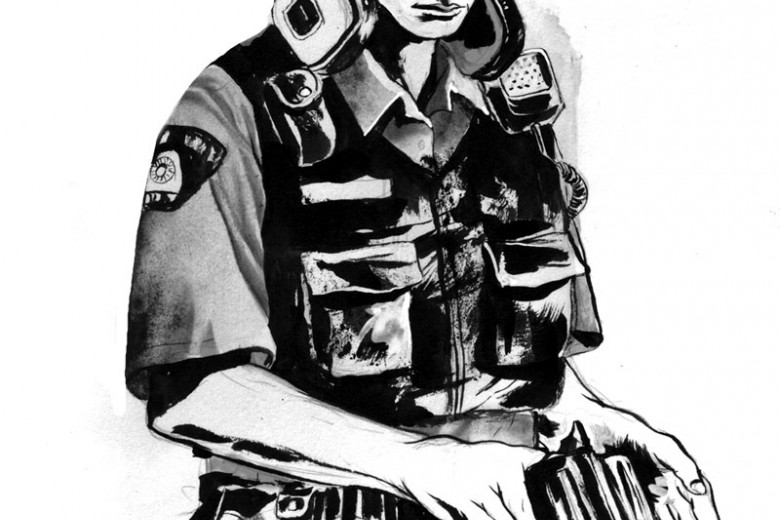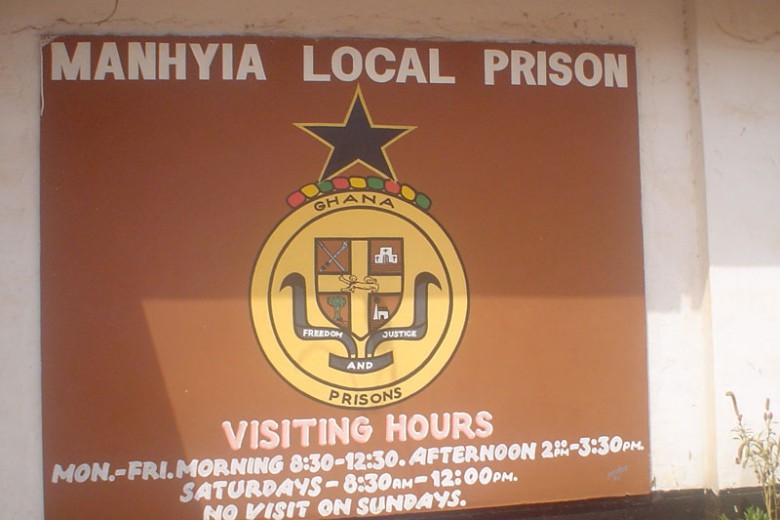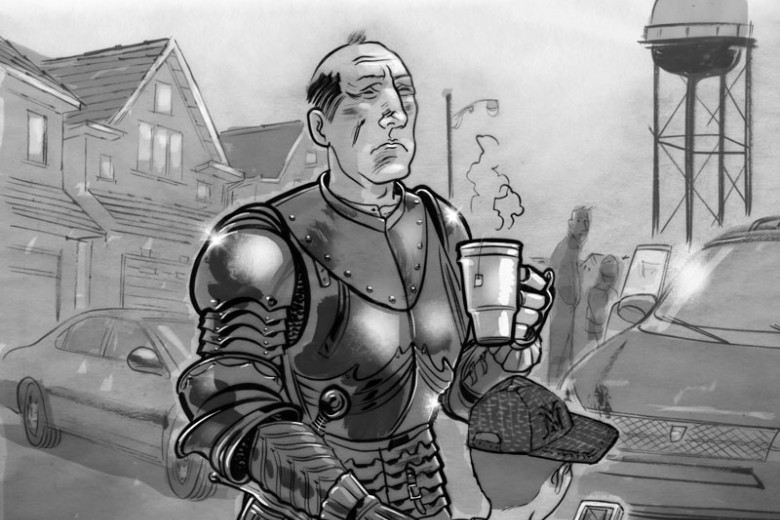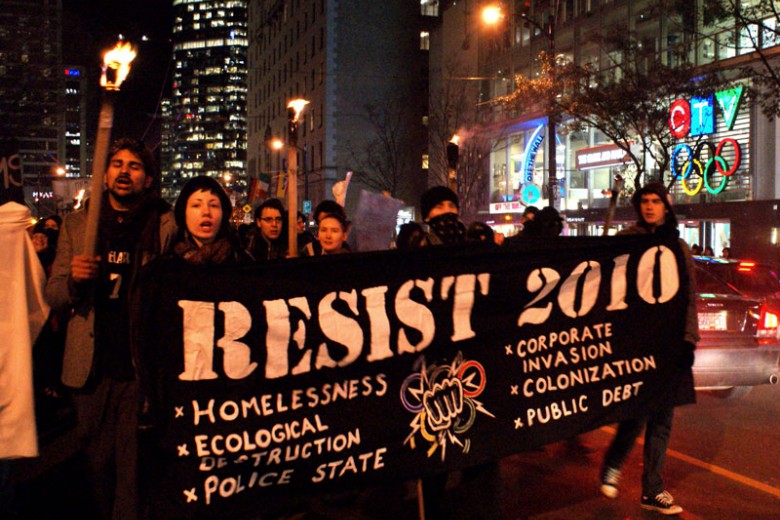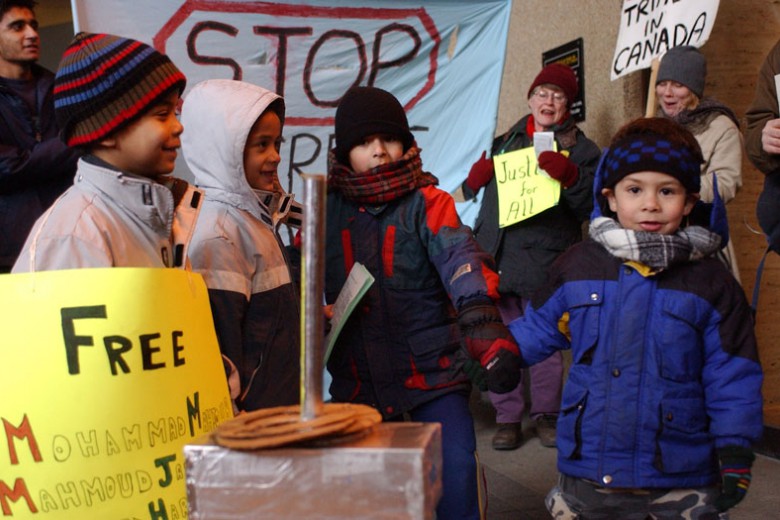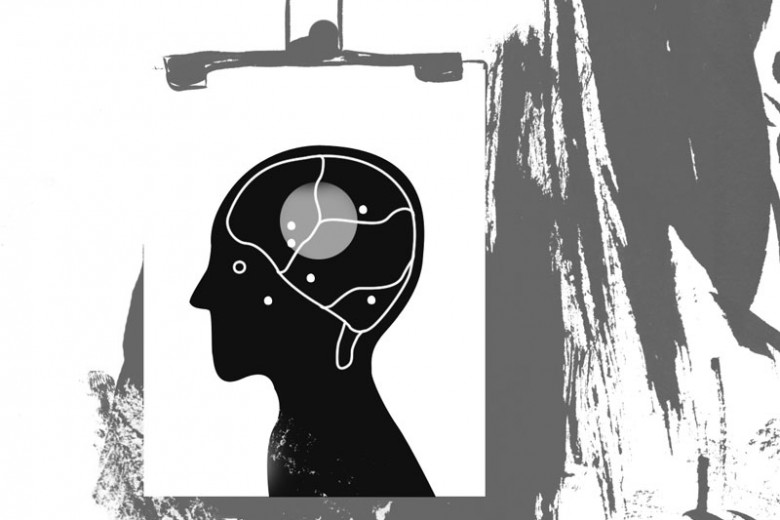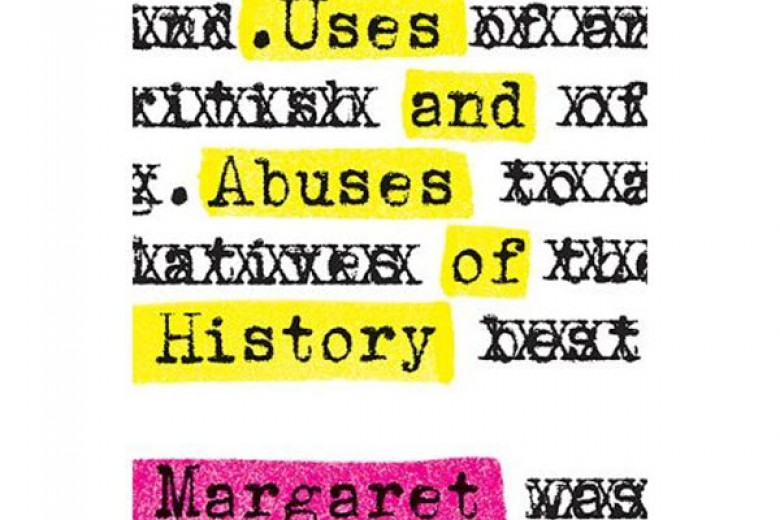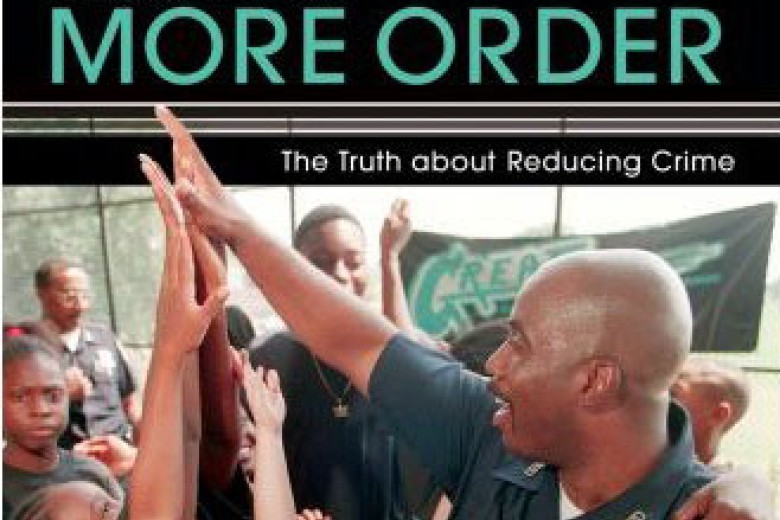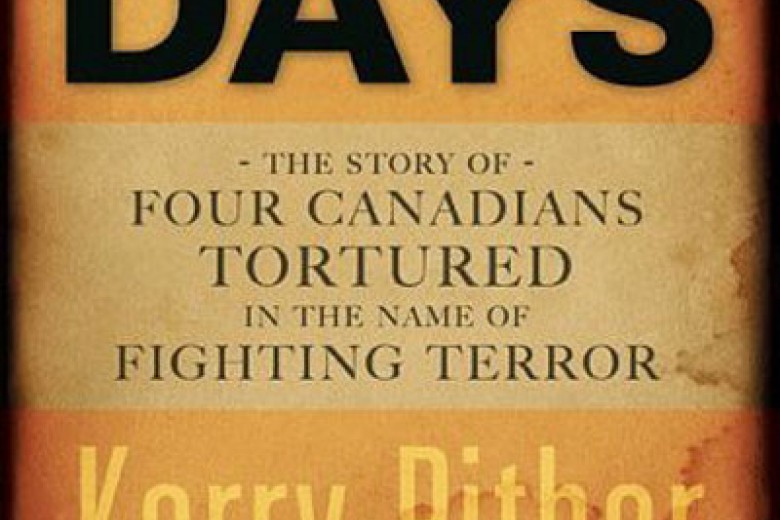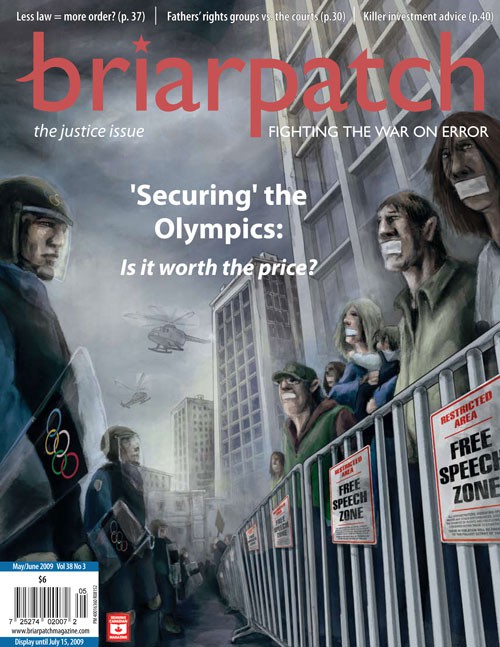
May/June 2009
Crime & punishment
In our crime & punishment issue, Briarpatch brings you a variety of ethically engaged perspectives on questions of crime, punishment, and the justice system, from policing mental health to securing the Olympics, from the fathers’ rights movement in Canada to the drive for prison reform in Ghana — plus some killer investment advice.


